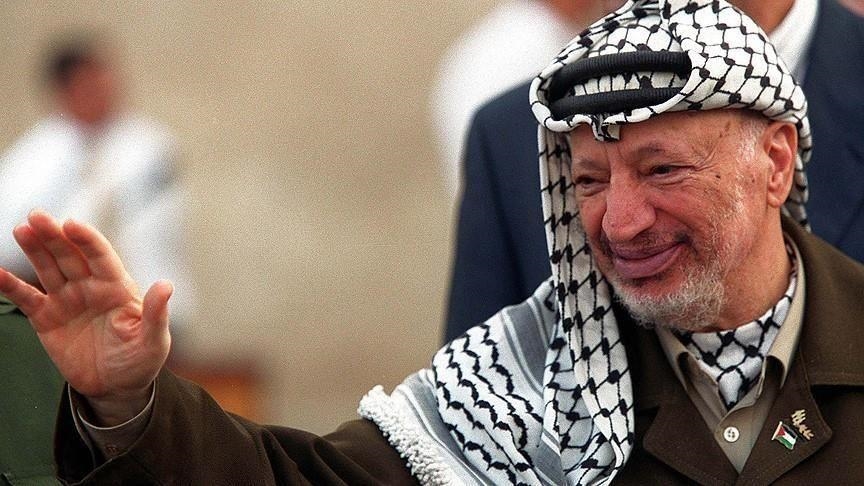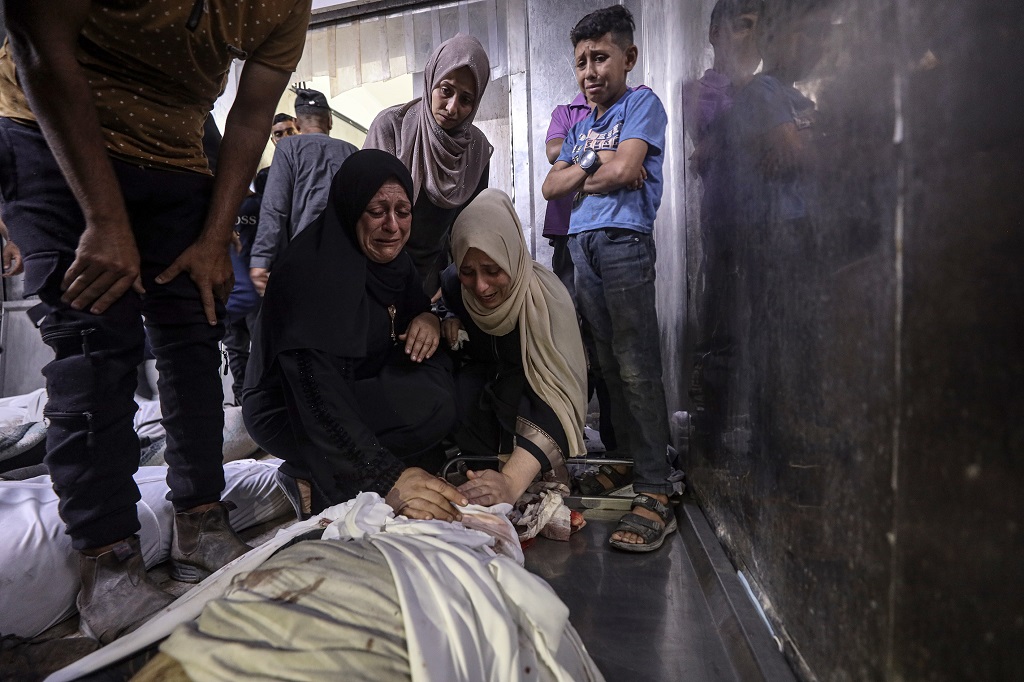RAMALLAH, November 10, 2024 (WAFA) – Tomorrow marks the 20th anniversary of the death of Yasser Arafat, the iconic leader of the Palestinian national movement, who passed away on November 11, 2004. His death followed years of isolation, imposed by an Israeli siege on his compound in Ramallah, which ultimately ended with his passing under mysterious circumstances.
As Palestinians and supporters around the world remember Arafat's leadership and commitment to the Palestinian cause, the anniversary comes at a moment of profound tragedy for the Palestinian people.
The ongoing Israeli assault on Gaza, which began on October 7, 2023, has claimed the lives of over 43,600 Palestinians, with more than 102,900 wounded—many of them women and children. Thousands of bodies remain trapped under rubble, inaccessible due to the ongoing bombardment.
In the West Bank, including East Jerusalem, more than 780 Palestinians have been killed, including 167 children, since the Israeli assault began.
A legacy of resistance and leadership
Yasser Arafat, born in Jerusalem on August 4, 1929, was a central figure in the Palestinian liberation movement for over half a century. He was educated in Cairo and played an active role in the Palestinian nationalist movement from a young age.
As a student, he was involved in founding the Palestinian Students' Union in Cairo, and he later became a key leader in the establishment of the Palestinian Liberation Organization (PLO). Arafat’s political and military leadership were instrumental in defining the modern Palestinian struggle.
In the 1950s, Arafat co-founded Fatah, the largest faction within the PLO, and became its spokesperson in 1968. As the PLO’s leader from 1969, Arafat’s defiance and resilience in the face of Israeli military and diplomatic pressure earned him widespread admiration.
He made his mark as a symbol of Palestinian resistance, particularly when, in 1974, he became the first Palestinian leader to address the United Nations General Assembly, famously stating, “I come bearing an olive branch and a freedom fighter's gun. Do not let the olive branch fall from my hand.”
Arafat and the Palestinian struggle
Throughout his leadership, Arafat faced many challenges, from military confrontations with Israeli forces to diplomatic isolation. Despite this, he became known for his ability to turn setbacks into victories. His leadership was critical during the 1982 Israeli invasion of Lebanon, where he coordinated the resistance efforts from Beirut and led the Palestinian fighters during the siege.
After being forced to leave Beirut, Arafat continued to represent the Palestinian cause from Tunis, where he worked to rebuild the Palestinian movement and led efforts to garner international support.
In 1987, Arafat played a key role in supporting the First Intifada (uprising) against Israeli occupation, while simultaneously engaging in diplomatic efforts to find a peaceful solution.
His ability to navigate the complex political landscape was further demonstrated in 1993 when he signed the Oslo Accords with Israeli Prime Minister Yitzhak Rabin, an agreement that, for the first time, recognized the Palestinian right to self-determination.
Arafat’s final years and death
In the years leading up to his death, Arafat remained a figure of immense importance to the Palestinian people. After the failure of the Camp David Summit in 2000, Arafat refused to concede to Israeli demands that he believed would have compromised Palestinian rights, including control over Jerusalem.
This stance led to the outbreak of the Second Intifada and brought renewed pressure from Israel. In late 2001, Israeli forces besieged Arafat’s compound in Ramallah, a siege that lasted until his death in November 2004.
His death, officially attributed to a stroke, was shrouded in controversy and remains a subject of speculation, with some suggesting that he may have been poisoned. Regardless, Arafat’s passing left a profound void in Palestinian leadership and the broader Middle East political landscape.
Remembering Yasser Arafat’s legacy
While Arafat is no longer physically present, his legacy continues to shape Palestinian identity and the struggle for justice. His vision of a free Palestine, his tenacity in the face of overwhelming odds, and his ability to rally the Palestinian people around a common cause are deeply ingrained in the national consciousness. His steadfast resistance against oppression continues to inspire generations of Palestinians fighting for their rights, dignity, and freedom.
As Gaza endures another brutal round of violence, the memory of Arafat’s leadership remains a beacon of resilience. The Palestinian people continue to resist occupation, determined to honor the legacy of their leader and fight for a future of justice and peace.
On the 20th anniversary of his passing, Yasser Arafat is remembered not only as the father of the Palestinian nation but also as a symbol of unwavering commitment to the cause of liberation.
--
M.N










